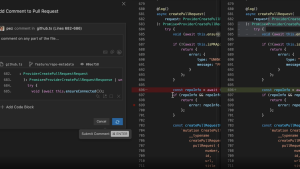
Do me a favor? Pop open another tab and start a new email. If you're like most IT practitioners, you've included—along with your name, email, and (if you're especially brave) phone number—your job title. It's possible your job title includes the name of a vendor or application, like "Ruby Specialist,” "Splunk engineer,” or "Microsoft admin."
Even if a vendor or application doesn't appear in your physical signature line, it might be indelibly inked in your mental self-image. When you introduce yourself to someone new, do you shorthand your role by naming the tools you use most often? If so, I'd like to suggest you take a minute and consider why.
There's certainly no shame in being proud of the skills we've learned. And saying something like "I'm the New Relic specialist" is an easy shorthand that gets you past the formalities when meeting new people and onto the meat of a conversation. At the same time, it does a disservice by diminishing your actual accomplishments in lieu of brand association.
Your value is not about whether you know the fifth parameter of the gefrinkel command in CodeMe version 12.3.95.7231, which was deprecated in 12.3.96.8012 in favor of the unglepacht function. It’s about your ability to solve problems, knowledge of when to use certain commands, understanding how to manage an environment of this scale and scope, and so on. Defining yourself specifically by tool doesn’t set you up for future success because tools eventually fade (see my post on how to think of yourself as a networking engineer first rather than a CLI pro!). Part and parcel of a career in tech is a commitment to being a lifelong learner. Being open to new ideas, new techniques, and new tools is the key to protecting yourself from boredom, stagnation, and fear.
There are a ton of new things to learn out there in our world. If you need a starting recommendation for a new developer skill, may I suggest getting familiar with a tool that integrates into your IDE to provide monitoring and observability telemetry? It might help you become both a better dev and help you better support the code you’re writing after it’s in production. If you’re an SRE, maybe our blog post on setting quality service level objectives and indicators would be a great place to start. Or maybe you’re interested in Internet of Things (IoT) devices. You can even apply your infrastructure knowledge to monitoring your own home solar array.
There’s no end to how you apply your tool-based skills. And that’s really the point. The tool or skill isn’t the essential part of the value you bring. How you find ways to apply that tool or skill, how you move in your own unique way through the world of tech, is. The tool—or more precisely the right tool—just makes you a more interesting and dynamic person when others see the creative things you do with these skills.
Additionally, if you’re not constantly learning—if you're mentally substituting the tool itself for the value to the business—you might unintentionally be gatekeeping qualified candidates from our industry. The New Relic Developer Relations team recently held a Twitter Spaces conversation about how to break into the industry, discussing imposter syndrome in depth. If you define yourself as only a tool-specific expert, you might be unintentionally communicating to newer folks that this is how the future generations of IT professionals should also identify themselves. It’s difficult to break into an industry if you feel like you must suit an exact set of skills rather than a set of competencies that help teams solve problems, which is infinitely more beneficial. That’s just one of the reasons that New Relic tries to break down barriers to tech careers through community outreach and why our student edition is free.
Finally, in this time of flexibility and mobility in the marketplace, if you find yourself in a company that insists on pushing you back into the “you’re the XYZ admin” pigeonhole, maybe look for a job at a company that sees you for the complete person you are, values everything you bring to the table, and supports your continued growth as the amazing person (not just engineer) you always have been.
The views expressed on this blog are those of the author and do not necessarily reflect the views of New Relic. Any solutions offered by the author are environment-specific and not part of the commercial solutions or support offered by New Relic. Please join us exclusively at the Explorers Hub (discuss.newrelic.com) for questions and support related to this blog post. This blog may contain links to content on third-party sites. By providing such links, New Relic does not adopt, guarantee, approve or endorse the information, views or products available on such sites.



